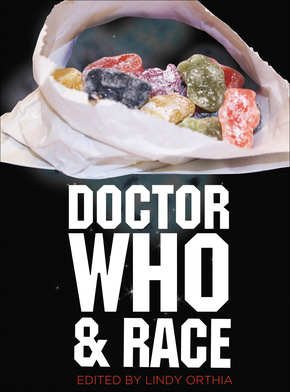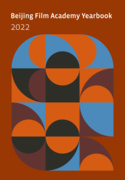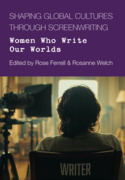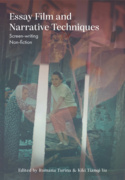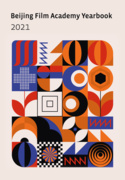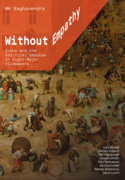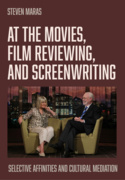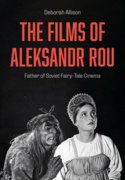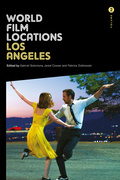Doctor Who and Race (Book)
Doctor Who is the longest running science fiction television series in the world and is regularly watched by millions of people across the globe. While its scores of fans adore the show with cult-like devotion, the fan-contributors to this book argue that there is an uncharted dimension to Doctor Who. Bringing together diverse perspectives on race and its representation in Doctor Who, this anthology offers new understandings of the cultural significance of race in the programme – how the show’s representations of racial diversity, colonialism, nationalism and racism affect our daily lives and change the way we relate to each other.
An accessible introduction to critical race theory, postcolonial studies and other race-related academic fields, the 23 contributors deftly combine examples of the popular cultural icon and personal reflections to provide an analysis that is at once approachable but also filled with the intellectual rigour of academic critique.
Edition
Doctor Who is the longest running science fiction television series in the world and is regularly watched by millions of people across the globe. While its scores of fans adore the show with cult-like devotion, the fan-contributors to this book argue that there is an uncharted dimension to Doctor Who. Bringing together diverse perspectives on race and its representation in Doctor Who, this anthology offers new understandings of the cultural significance of race in the programme – how the show’s representations of racial diversity, colonialism, nationalism and racism affect our daily lives and change the way we relate to each other.
Lindy Orthia is a lecturer at the Australian National Centre for the Public Awareness of Science, the Australian National University. She has examined intersections between science, ideology and Doctor Who in several publications.
Introduction
PART I: The Doctor, his companions and race
Chapter 1: The white Doctor – Fire Fly
Chapter 2: Too brown for a fair praise: The depiction of racial prejudice as cultural heritage in Doctor Who – Iona Yeager
Chapter 3: Conscious colour-blindness, unconscious racism in Doctor Who companions – Linnea Dodson
Chapter 4: Doctor Who, cricket and race: The Peter Davison years – Amit Gupta
Chapter 5: Humanity as a white metaphor – Quiana Howard and Robert Smith?
Chapter 6: “You can’t just change what I look like without consulting me!”: The shifting racial identity of the Doctor – Mike Hernandez
PART II: Diversity and representation in casting and characterization
Chapter 7: No room for old-fashioned cats: Davies era Who and interracial romance – Emily Asher-Perrin
Chapter 8: When white boys write black: Race and class in the Davies and Moff at eras – Rosanne Welch
Chapter 9: Baby steps: A modest solution to Asian under-representation in Doctor Who – Stephanie Guerdan
Chapter 10: That was then, this is now: How my perceptions have changed – George Ivanoff
Chapter 11: “One of us is yellow”: Doctor Fu Manchu and The Talons of Weng-Chiang – Kate Orman
PART III: Colonialism, imperialism, slavery and the diaspora
Chapter 12: Inventing America: The Aztecs in context – Leslie McMurtry
Chapter 13: The Ood as a slave race: Colonial continuity in the Second Great and Bountiful Human Empire – Erica Foss
Chapter 14: Doctor Who and the critique of western imperialism – John Vohlidka
Chapter 15: Through coloured eyes: An alternative viewing of postcolonial transition – Vanessa de Kauwe
PART IV: Xenophobia, nationalism and national identities
Chapter 16: The allegory of allegory: Race, racism and the summer of 2011 – Alec Charles
Chapter 17: Doctor Who and the racial state: Fighting National Socialism across time and space – Richard Scully
Chapter 18: Religion, racism and the Church of England in Doctor Who – Marcus K. Harmes
Chapter 19: The Doctor is in (the Antipodes): Doctor Who short fiction and Australian national identity – Catriona Mills
PART V: Race and science
Chapter 20: “They hate each other’s chromosomes”: Eugenics and the shifting racial identity of the Daleks – Kristine Larsen
Chapter 21: Mapping the boundaries of race in The Hungry Earth/Cold Blood – Rachel Morgain
Chapter 22: Savages, science, stagism, and the naturalized ascendancy of the Not-We in Doctor Who – Lindy A. Orthia
Conclusion
'This is an engaging collection dealing with a frequently ignored aspect of this great series. For both fans and academics alike, it is well worth picking up.'
'A valuable addition to Doctor Who studies.'
'In a fan base that sometimes ignores the implications of race and pretends to be a colorblind society, Doctor Who and Race does a wonderful job of opening up space for conversation about the beloved show Doctor Who.'
'There is no doubt in my mind that Doctor Who and Race is a very important book, and one that I think every fan should read.'
'"Many of the writers and contributors are lifelong fans, and their love for the show shines through every page" "The essays about the series are written intelligently ... and are deeply researched. It places every era of The Doctor in it’s own cultural time frame: how did the attitude of The Doctor change in each decade? How did the attitude towards race change in every decade?"'

